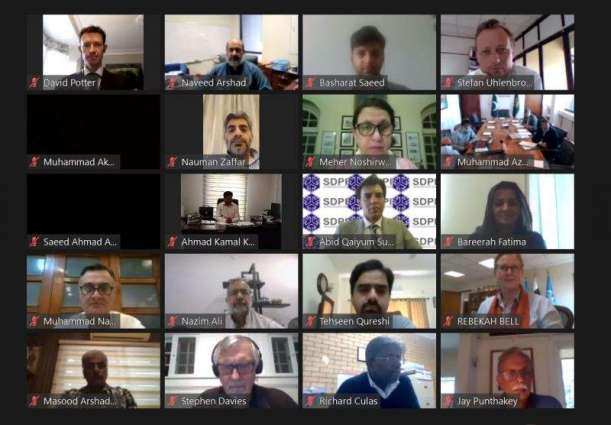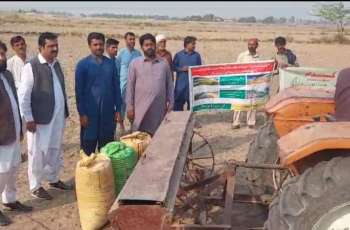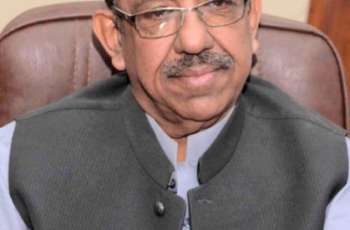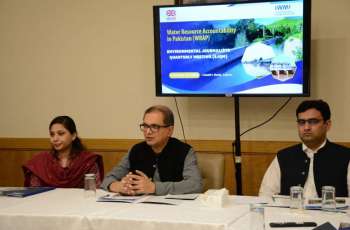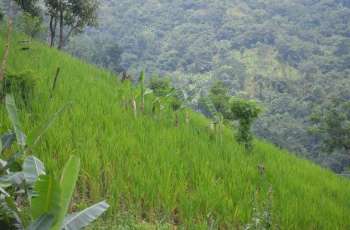The panelists discuss how a shared vision for water and food security in the South Asian country could be achieved in a changing climate during these difficult times of COVID-19.
LAHORE: (UrduPoint/Pakistan Point News-April 26th, 2021) A holistic approach and reliable database on water resources and their usage across the Pakistan is the key to achieving food, water and energy security in the fifth most climate-vulnerable country in the world, according to the panellists who attended a UN Food Systems Summit Independent Dialogue held yesterday.
The Dialogue, organised by the International Water Management Institute (IWMI) and partners, highlighted the need for transformative approaches to promote equity and inclusion in WEF nexus governance for sustainable water, energy and food systems.
Other outcomes from the discussion, which included contributions from the IFPRI, Hisaar Foundation, Sustainable Development Policy Institute (SDPI), Pakistan Council of Research in Water Resources (PCRWR), FAO, Global Water Partnership, Pakistan Agricultural Research Council (PARC), flagged the need for a substantial increase in research and development funds for the agriculture sector through active dialogues with donors and development partners.
Dialogue participants laid emphasis on improving policy coherence among ministries through better coordination and capacity building and raising awareness among researchers, policymakers, government officials and farmers about the benefits of WEF nexus modelling approaches to optimise the agriculture production.
Furthermore, they laid stress on the need for sizable interdisciplinary projects to realise true systems transformation and WEF nexus operationalization through pilot projects in the Indus Basin of Pakistan that hosts one of the world’s largest contiguous irrigation networks.
Conclusions from this event and three other Independent Water Dialogues will contribute to the Global Dialogue titled ‘Water: the game changer for food systems’ on April 27 and ultimately to the UN Food Systems Summit in September.
The objective of the dialogue was to discuss how a shared vision for water and food security in the South Asian country could be achieved in a changing climate. Research shows that water security is posing serious challenges for the social and economic development of Pakistan, an agrarian country of 220 million people, amid the COVID-19 pandemic.
IWMI Director General Dr Mark Smith said, “Pakistan is a region that is highly vulnerable to climate change. These conditions are negatively affecting water, agriculture, health, environment and other sectors in Pakistan. So, managing water risks in the food system is going to be one of the highest priorities in the future food system of Pakistan.”
Ghufran Memon, secretary to the Ministry of National Food and Security Research (MNF&SR), said, “Transformation in food systems is among the most powerful ways to make progress towards all 17 Sustainable Development Goals. This dialogue explored the views of all stakeholders across Pakistan on a sustainable food system and the importance of this water, energy and food nexus in the changing climate.”
Mohsin Hafeez, IWMI’s Country Representative for Pakistan; “Around 80 participants from 12 countries had shared rich and diverse views on key bottlenecks in implementing the operationalization of WEF nexus in the context of Indus Basin. There is an urgent need for promoting inter-sectoral cooperation through evidence based information to ensure water-food-energy security and environmental sustainability for food system transformation in Pakistan”.
The last of the UNFSS independent dialogues provided an opportunity for in-depth exchanges to take place between diverse actors from across food systems, governments, think tanks, universities and international organisations to shaping the pathways, which will lead to equitable and sustainable food systems by 2030.
The Pakistan dialogue highlighted eight key thematic areas around which participants engaged in group discussions: moving towards low carbon energy for food production; climate change impact on water and food security; policy coherence and institutional coordination in water, food, energy and climate change that operationalize the WEF nexus; advancing technical WEF models, tools and frameworks for decision making at multiple scales; enhancing resilience of water system across multi‐sector (agriculture, domestic, industry and environment) demands; assessing socio‐economic benefits of WEF Nexus; promoting equity and inclusion in nexus governance to create opportunities for transformation towards more just food, water and energy systems; and trading in the WEF nexus across scales.
